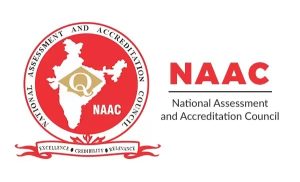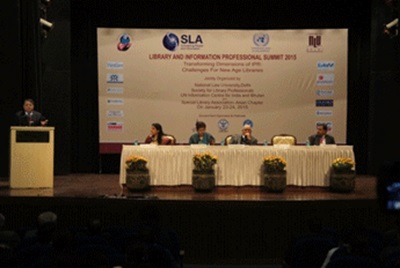National Law University, Delhi hosted the Library and Information Professional Summit 2015 in association with the Society for Library Professionals, UN Information Centre for India and Bhutan and Special Library Association (SLA)- Asian Chapter. The theme of the Conference was “Transforming Dimensions of IPR: Challenges for New Age Libraries
The conference was inaugurated with lighting of the lamp by the Chief Guest hon’ble Mr. Justice A.P. Shah, Chairman, Law Commission of India, In his inaugural address, Justice Shah appreciated the library fertility in discussing copyright issues for supporting academic and research community. He also stressed the development of libraries in all types of institutes for better information services. He praised Justice T.P.S. Chawla Library to help him in a number of proposals and assignment on socio-legal issues. Hon’ble Mr. Justice Ravindra Bhat delivered a keynote address on various IPR issues. The conference was concluded with the following findings
- Librarians have the greater responsibility to respect copyright laws. They are the responsible to make users aware of how to work within the sphere of copyright laws. However, the flexibility in copyright laws should also be intimated to the users by information keepers
- The length of the copyright laws must be curtailed after the death of the creator. Unlike the fixed accessed, the successors of the intellectual right holders must not hold the rights for more time, as it must come into the public domain.
- Open Access Movement manifesto must be adopted by all public institutions in India, where public funding is utilized in research. It may be gained in two ways. It would enhance the quality of research due to increased visibility, and plagiarism would be controlled if the research is available in digital format in the public domain.
- It is felt that each academic institution must have two types of policies for enhancing quality education and research development.
- Institutional Copyright Guidelines to prevent intellectual property rights and serve the academic community in a better way.
- Institutional Open Access Policy to increase visibility of education and research output.
- It is the duty of the librarian to make intellectual property right holders aware of creative common licenses and their use.





